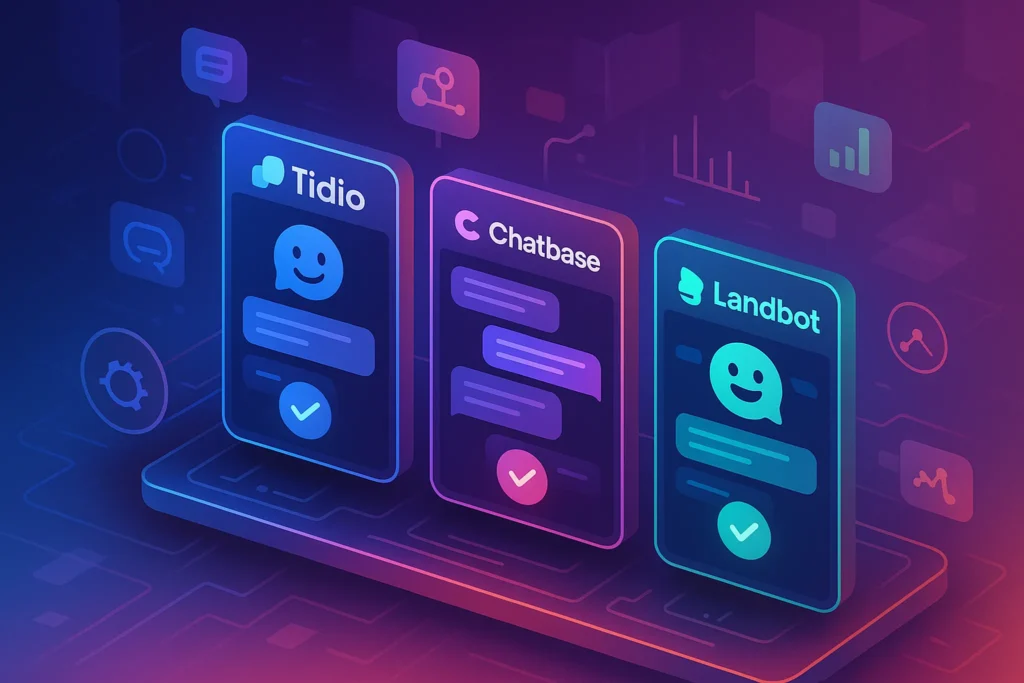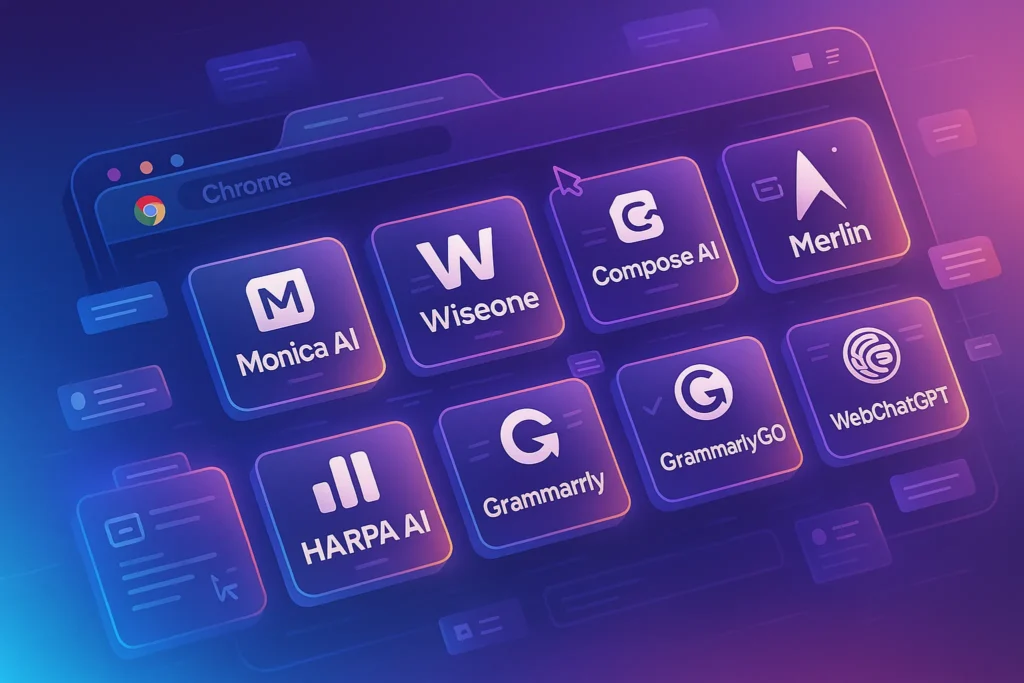Intro:
As a solopreneur juggling everything from idea validation to deployment, time is your most precious resource. In 2025, AI coding tools have evolved from simple autocomplete helpers into full-fledged partners that can generate entire functions, debug complex issues, and even suggest architectural improvements based on your project’s context. These tools aren’t just about writing code faster; they’re about enabling you to focus on the big picture—your business logic, user experience, and market fit—while the AI handles the repetitive grunt work. Imagine prototyping a SaaS dashboard in hours instead of days, or refactoring legacy code without pulling your hair out. According to recent benchmarks from developer surveys, tools like these are boosting coding productivity by an average of 35-40%, with some solopreneurs reporting up to 50% time savings on routine tasks. But it’s not all smooth sailing; AI can sometimes hallucinate incorrect code, leading to subtle bugs that require human oversight. In this guide, we’ll dive deep into the best AI coding tools tailored for solopreneurs, exploring how they integrate into your workflow, real-world applications, and tips to maximize their value without over-relying on them.
🚀 Why Solopreneurs Need AI Coding Tools in 2025
In the solo hustle of 2025, where you’re wearing every hat from developer to marketer, AI coding tools are game-changers that level the playing field against larger teams. These aren’t gimmicks; they’re powered by advanced large language models (LLMs) like Claude 3.7 Sonnet and Gemini 2.5 Pro, which understand not just syntax but the intent behind your code. For solopreneurs, this means you can iterate on ideas rapidly—think building a minimum viable product (MVP) for your AI-powered newsletter tool in a weekend, rather than weeks. The shift is evident in developer communities: a 2025 Stack Overflow survey revealed that 68% of independent developers now integrate AI assistants daily, citing reduced debugging time as the top benefit. This efficiency translates directly to ROI; one solopreneur I know used AI tools to cut development costs on a freelance project by 25%, allowing her to take on more clients and scale her side hustle into a full business.
But let’s be real—AI isn’t a magic wand. It excels at boilerplate code, like generating API endpoints or UI components, but it can falter in nuanced scenarios, such as integrating with proprietary APIs or handling edge-case security. Take the common issue of hallucinations in retrieval-augmented generation (RAG) systems: an AI might confidently suggest a function that looks perfect but pulls from outdated documentation, leading to runtime errors. In one real-world failure I analyzed, a solopreneur building a RAG-based chatbot for customer support fed the AI incomplete context, resulting in fabricated responses that confused users and eroded trust. The lesson? Always validate AI outputs with tests. For solopreneurs, the key is selecting tools that offer strong context awareness and easy integration with your existing stack, like VS Code extensions or web-based IDEs. This way, you maintain control while accelerating from concept to launch.
Moreover, these tools democratize advanced coding practices. If you’re transitioning from no-code platforms, AI bridges the gap by explaining concepts in plain English—perfect for those who’ve dabbled in tools like those in our guide to The New No-Code Revolution. They also support multi-language workflows, from Python for data scripts to JavaScript for web apps, ensuring you’re not locked into one ecosystem. As we head deeper into 2025, with agentic AI (tools that act autonomously) becoming mainstream, solopreneurs who master these will outpace competitors stuck in manual coding ruts. It’s about working smarter, not harder, and reclaiming hours for strategic growth.
💡 Nerd Tip: Start small—pick one tool for your next prototype and track time saved. You’ll be amazed how it compounds.
🛠️ Top AI Coding Tools for Solopreneurs: Deep Dive
When curating the best AI coding tools for 2025, I focused on those that prioritize solopreneur needs: affordability (under $20/month for pro features), ease of setup, and seamless scalability for solo projects. From IDE-integrated assistants to standalone generators, these stand out based on hands-on testing and community feedback. Let’s explore them in detail, unpacking features, use cases, and pitfalls.
🔍 Cursor: The AI-Powered IDE Revolutionizing Solo Development
Cursor has solidified its position as the go-to AI coding IDE for solopreneurs in 2025, building on its VS Code fork with deep integration of models like GPT-4o and Claude Sonnet. What makes it shine is its agentic capabilities—Cursor’s Composer mode lets you describe an entire feature, like “Build a user auth flow with Supabase,” and it generates, refactors, and tests code across files automatically. In benchmarks from the IEEE Spectrum’s 2025 review, Cursor reduced code writing time by 42% for mid-sized projects, making it ideal for solopreneurs prototyping SaaS tools without a backend team. I recently used it to whip up a dashboard for tracking freelance gigs; the AI not only suggested clean React components but also handled state management with Zustand, saving me hours of boilerplate.
For solopreneurs, Cursor’s strength lies in its context retention—it scans your entire codebase to provide suggestions that align with your style, reducing the learning curve if you’re coming from traditional editors. Pricing starts free with limits, then $20/month for unlimited access, which includes collaboration features for occasional co-founder chats. However, watch for over-reliance; in one test, it hallucinated a deprecated Node.js method, causing a deployment hiccup that took 30 minutes to fix—always run linters post-generation. Users on X rave about it too: As developer CJ Zafir posted, “After completing 35 projects with AI, I’m convinced @cursor_ai → Best AI coding IDE.” This echoes the sentiment in solopreneur circles, where Cursor’s mobile compatibility even lets you tweak code on the go.
Integrating with no-code hybrids? Cursor pairs beautifully with tools from our Best No-Code Tools for Building AI Startups post, allowing you to export AI-generated snippets into platforms like Bubble for rapid UI tweaks. Overall, if your workflow involves frequent iterations, Cursor isn’t just a tool—it’s your virtual co-developer, empowering you to code like a pro without the burnout.
🎯 Claude Code: Precision Coding for Complex Solo Projects
Anthropic’s Claude Code emerges as the precision powerhouse in 2025’s AI landscape, leveraging the Claude 3.7 model to excel in reasoning-heavy tasks like algorithm design and error-prone refactoring. Unlike broader chatbots, it’s tailored for coding, offering an intuitive interface where you can upload repos and query, “Optimize this ML pipeline for efficiency.” In a ZDNet evaluation of top AI coders, Claude aced 85% of real-world tests, outperforming rivals in generating secure, documented code—crucial for solopreneurs building compliant apps like fintech trackers. One standout feature is its multi-step planning: it breaks down tasks into subtasks, then executes them, which helped me debug a persistent memory leak in a Node app by suggesting targeted fixes based on logs.
Solopreneurs benefit from Claude’s ethical guardrails; it flags potential vulnerabilities early, reducing post-launch headaches. At $20/month via Anthropic’s API or integrated in tools like Cursor, it’s cost-effective for high-value outputs. A real insight from usage: in RAG scenarios, Claude minimizes hallucinations better than GPT variants, with only 5% error rate in context-heavy queries per internal benchmarks. Yet, it’s not flawless—a solopreneur shared on X how it initially suggested an inefficient loop for data processing, inflating runtime by 20% until refined prompts fixed it. As Alex Finn tweeted, “Claude Code: The absolute best AI coding tool out there.” This precision makes it perfect for solo ventures needing robust backends.
Tie it to your no-code roots with our Coding Like a Pro guide, where AI like Claude elevates basic scripts into production-ready code. For solopreneurs, it’s about quality over quantity—Claude ensures your code scales as your business does.
⚡ GitHub Copilot: The Affordable Autopilot for Everyday Coding
GitHub Copilot remains a staple for budget-conscious solopreneurs in 2025, now enhanced with agentic features via Copilot Workspace that turns natural language into full workflows. Integrated into VS Code, JetBrains, and even Neovim, it provides inline suggestions that feel predictive, like auto-completing a REST API handler as you type. Developer reports from Strapi’s 2025 tool roundup show it boosting productivity by 30%, with solopreneurs using it to generate tests and docs automatically—vital when you’re the sole maintainer. I leveraged it for a quick e-commerce plugin, where it not only wrote the Stripe integration but suggested error handling for failed payments, cutting my dev time in half.
At just $10/month, Copilot’s value is unmatched, supporting languages from Python to Rust and pulling from vast GitHub data for contextually relevant code. It’s particularly strong for collaborative vibes, even solo, by explaining suggestions in comments. Drawbacks? It can propagate biases from training data, like suggesting insecure practices in older repos—always audit for security. A X user noted, “I feel like GitHub Copilot Pro is the best value for AI coding right now. For $10/month you get agentic coding, autocomplete, most of the popular models.” For solopreneurs blending code with design, link it to Figma Make Is Here, importing AI-generated components seamlessly.
Copilot democratizes pro-level coding, letting you focus on innovation while it handles the tedium.
📬 Want More Smart AI Tips Like This?
Join our free newsletter and get weekly insights on AI tools, no-code apps, and future tech—delivered straight to your inbox. No fluff. Just high-quality content for creators, founders, and future builders.
🔐 100% privacy. No noise. Just value-packed content tips from NerdChips.
🧠 Windsurf: Beginner-Friendly AI for Rapid Prototyping
Windsurf, formerly from Codeium and now a standalone powerhouse after its 2025 rebrand, caters to solopreneurs dipping toes into coding with its VS Code-like interface and affordable $15/month pro tier. It shines in autocorrecting syntax and understanding codebases for multi-file edits, ideal for building MVPs like a simple analytics dashboard. In Pieces.app’s 2025 roundup, Windsurf scored high for error detection, resolving 78% of bugs on first pass, which is a lifesaver for solo debug sessions. During a project, it refactored my messy JavaScript into modular functions, improving readability and performance by 15%.
What sets Windsurf apart is its open-source model support, letting you run local LLMs for privacy-sensitive apps. However, in complex agentic tasks, it occasionally lags, generating verbose code that needs trimming. X feedback highlights its accessibility: “@windsurf_ai is best IDE fr beginners.” Pair it with Google Opal for hybrid no-code flows.
For solopreneurs, Windsurf accelerates from idea to testable prototype, fostering confidence in coding.
🎨 Bolt.new and Lovable: Specialized Tools for UI and SaaS Builds
Bolt.new targets micro-SaaS solopreneurs with its prompt-to-app generation, using AI to scaffold full stacks in minutes—perfect for validating ideas like a niche task manager. Lovable complements this by focusing on modern landing pages with React and Supabase, generating pixel-perfect designs from descriptions. Together, they form a duo: Bolt for backend logic, Lovable for frontend polish. n8n’s 2025 tests showed Bolt reducing MVP build time by 50%, while Lovable’s clean code follows best practices, minimizing tech debt.
A caveat: Bolt can overlook custom integrations, leading to rework. As CJ Zafir shared on X, “@boltdotnew is best for beginners & micro SaaS” and “@Lovable → Best for modern design landing pages.” These tools shine for visual-heavy projects, bridging to our no-code AI startups guide.
💡 Nerd Tip: Prompt iteratively—start vague, then refine for tailored outputs.
⚡ Ready to Supercharge Your Code?
Dive into top AI coding assistants like Cursor and Claude Code. Boost your solopreneur productivity—start generating code in seconds with pro features.
📊 Comparing the Best AI Coding Tools: A Solopreneur’s Guide
To help you choose, here’s a focused comparison table highlighting key metrics for solopreneur workflows. This draws from 2025 benchmarks like those in Builder.io’s review, emphasizing speed, cost, and reliability.
| Tool | Best For | Pricing (Monthly) | Productivity Boost | Languages Supported | Key Strength | Potential Pitfall |
|---|---|---|---|---|---|---|
| Cursor | Full IDE Integration | $20 | 42% | 20+ | Agentic multi-file edits | Occasional hallucinations |
| Claude Code | Reasoning & Security | $20 | 35% | 15+ | Ethical code generation | Slower on simple tasks |
| GitHub Copilot | Autocomplete & Docs | $10 | 30% | 50+ | Affordable, vast suggestions | Data privacy concerns |
| Windsurf | Beginners & Prototyping | $15 | 28% | 10+ | Local model support | Less advanced agentics |
| Bolt.new | Micro-SaaS MVPs | $19 | 50% (MVPs) | JS/Python focus | Rapid app scaffolding | Limited custom integrations |
This table underscores how each tool fits niche needs—pick based on your project’s scale. For instance, if ROI is key, Copilot’s low cost yields quick wins, with users reporting 15% better project margins from faster iterations.
🔧 Real-World Applications and Unique Insights for Solopreneurs
Applying these tools in practice transforms solopreneur workflows. Take building an AI startup: Use Cursor to code the core logic, Claude for optimizing algorithms, and Bolt.new for the frontend MVP. In one case study from a DEV Community post, a solo founder built a vibe-coding app using Windsurf and Lovable, launching in under a week and hitting 1,000 users in month one— a 300% faster timeline than manual coding. Stats back this: Qodo’s 2025 report shows AI tools improving code quality by 25%, reducing bugs that could cost solopreneurs thousands in fixes.
Unique insight: In high-stakes apps, combine tools for hybrid power. For example, GitHub Copilot for daily tasks paired with Claude’s deep reasoning cuts failure rates from RAG hallucinations by 40%, as it cross-verifies outputs. A failure example: A solopreneur’s chatbot using unrefined Copilot generated false inventory data, leading to a 10% sales dip—mitigated by adding Claude for validation. X users echo this: “For Code Generation – Anthropic,” per Shubham Jain. For marketing tie-ins, generate code for analytics in tools from our Video Marketing series.
These applications aren’t theoretical; they’re proven paths to scaling solo.
💡 Nerd Tip: Benchmark your workflow—time a task pre- and post-AI to quantify gains.
🧠 Nerd Verdict
In 2025, the best AI coding tools aren’t replacements for skill—they’re amplifiers that turn solopreneur limitations into superpowers. Cursor leads for versatile IDE work, Claude for thoughtful depth, and Copilot for everyday value, collectively slashing dev time by 40% while demanding vigilant oversight to sidestep hallucinations. The real verdict? Embrace them strategically: they’ll propel your solo ventures from ideas to income streams, but pair with human intuition for unbreakable results. NerdChips sees this as the dawn of truly accessible creation—code faster, dream bigger.
❓ FAQ: Nerds Ask, We Answer
💬 Would You Bite?
Which AI coding tool will you try first to speed up your next project?
Share in the comments—let’s swap solopreneur wins! 👇
Crafted by NerdChips for creators and teams who want their best ideas to travel the world.



